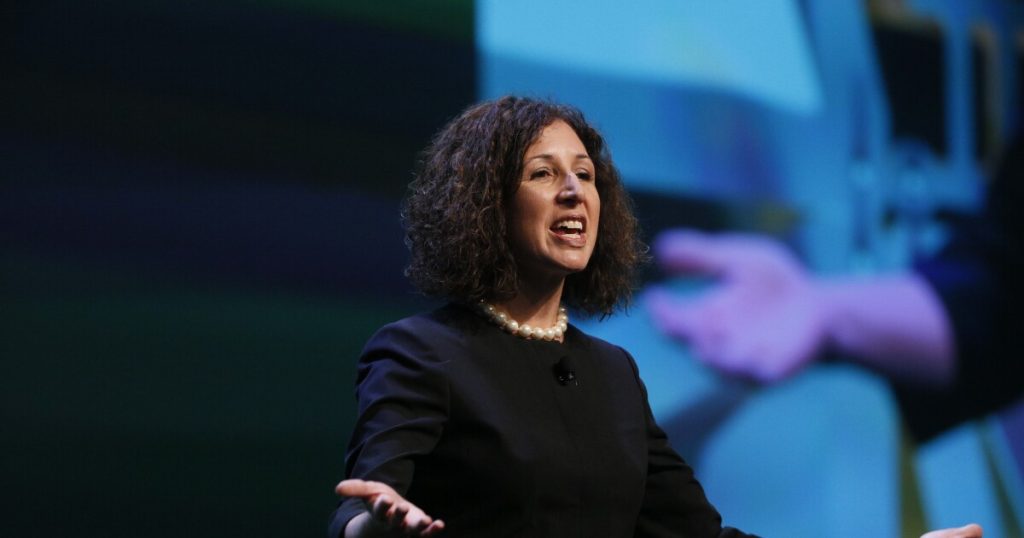The principal lobby for community banks is calling on Congress to abolish tax exemptions for larger credit unions, marking a strategic shift for a group that previously opposed tax breaks for the entire industry.
On the heels of its annual convention last week, the Independent Community Bankers of America said policymakers should impose federal taxes on credit unions with more than $1 billion of assets.
The ICBA cited a record number of
The “growing skepticism of credit unions’ tax and regulatory exemptions must evolve into policymaker action,” ICBA President and CEO Rebeca Romero Rainey said in a statement. The proposed policy change would “help ensure taxpayer dollars no longer tilt the competitive marketplace, subsidize community banking consolidation, and result in fewer choices for consumers and small businesses.”
Formal legislation has yet to be introduced.
The ICBA in 2024 had
By focusing on larger credit unions, the ICBA is effectively recognizing that its argument applies to many — but not all — credit unions.
The National Credit Union Administration said 451 of the nation’s 4,550 credit unions had $1 billion of assets or more. These organizations hold 77% of the credit union sector’s assets and account for 74% of its members.
Credit unions in recent years have pursued growth to diversify and compete with banks. Acquiring banks enables credit unions to expand their customer bases, reach new markets and often expand into business lending.
In 2024, a record
The ICBA and other critics of these deals, including the American Bankers Association, argue that when credit unions buy banks, they effectively become banks while retaining their nonprofit status. This deprives communities of tax revenue and creates an uneven playing field for the traditional banks with which acquisitive credit unions compete, they say.
Yet small bank sellers often find such deals attractive because credit unions pay cash, making transactions relatively simple. Credit unions say that when they buy banks, they help to ensure communities
America’s Credit Unions, the sector’s chief lobby in Washington, pushed back on the ICBA’s proposal.
“It seems like every day the credit union industry faces a new attack from the bank lobby, but this time, they’ve really shown their cards. Shifting their target away from all credit unions to now just the largest in the industry shows they know their message is weak with lawmakers and consumers alike,” Jim Nussle, America’s Credit Unions president and CEO, said in a statement. “This isn’t about the millions of Americans who will suffer without access to a credit union; this is about credit union competition chipping away at the banks’ own bottom lines.”
He noted several big banks accepted federal government bailouts amid the 2008 financial crisis that rocked the industry. Hundreds of smaller banks failed in the aftermath of the crisis.
Nussle also pointed out that publicly traded banks often operate under Subchapter S corporation status, which allows them to pass corporate income directly to their shareholders for federal tax purposes.
In short, he said, these banks do not pay corporate income taxes on their profits. Instead, that income is reported on the individual tax returns of shareholders.
“For decades, banks have taken advantage of taxpayers for their own profit: they enjoy Subchapter S subsidies, make risky decisions that consequentially rip away people’s American dreams, abandon communities, and get bailed out by the government when they overstep,” Nussle said. “Credit unions have remained a vital part of the financial services marketplace for a reason.”
Banks counter that Subchapter S corporation status exists so that income is not double-taxed — first on the corporation, then later on shareholders.
Meanwhile, the $643 million-asset Legacy Community Federal Credit Union’s planned acquisition of the $104 million-asset First Community Bank in Alabama was billed by the buyer as a way to build scale and bring “together a full range of consumer and business products.”
Financial terms were not disclosed. Legacy Community said it expects to finalize the deal late this year after securing regulatory approvals. The boards of both institutions signed off on the transaction.

